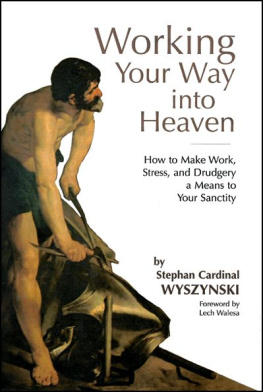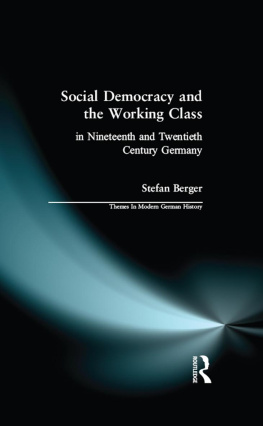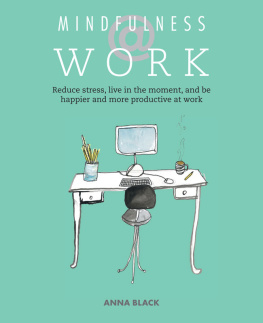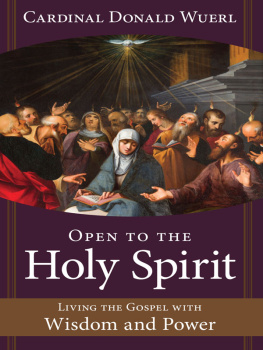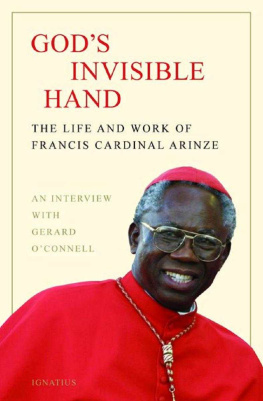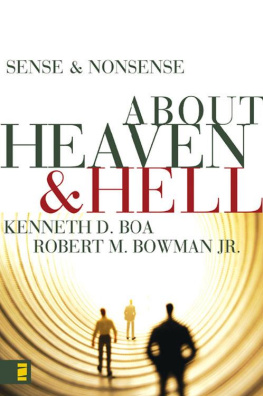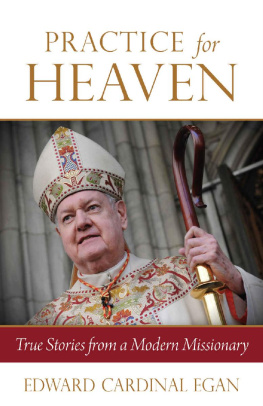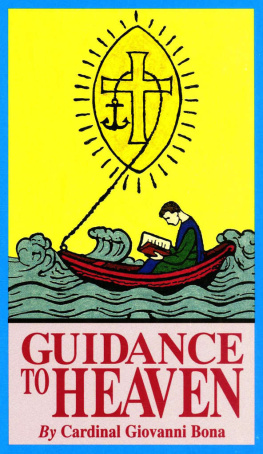

Working Your Way into Heaven was originally published in Polish as Duch Pracy Ludzkiej in 1946. An English translation by J. Ardle McArdle was published under the title Work by Scepter Publishers, Ltd., Dublin, and Scepter Press, Chicago, in 1960. In 1995, with the kind permission of the Primatial Institute of Stefan Cardinal Wyszynski in Warsaw, Poland, Sophia Institute Press published an edition entitled All You Who Labor: Work and the Sanctification of Daily Life, which was based on the 1960 Scepter Press translation, with some editorial revisions and improvements in the translation. This retitled 1998 edition by Sophia Institute Press is a reprint of the 1995 edition.
Copyright 1995 Sophia Institute Press
Printed in the United States of America
All rights reserved
Jacket design by John L. Barger
The cover painting is a detail of The Forge of Vulcan,
by Diego Rodriguez Velasquez, Museo del Prado,
Madrid, Spain (Scala/Art Resource, New York).
No part of this book may be reproduced, stored in a retrieval system, or transmitted in any form, or by any means, electronic, mechanical, photocopying, or otherwise, without the prior written permission of the publisher, except by a reviewer, who may quote brief passages in a review.
Sophia Institute Press
Box 5284, Manchester, NH 03108
1-800-888-9344
Library of Congress Cataloging-in-Publication Data
Wyszynski, Stefan, 1901-
[Duch pracy ludzkiej. English]
Working your way into heaven : how to make work, stress, and drudgery a means to your sanctity / Stefan Cardinal Wyszynski.
p. cm.
Includes bibliographical references.
ISBN 0-918477-73-5 (pbk.)
1. Work. I. Title.
[BJ1498.W913 1998]
Table of Contents
Editors Note: The biblical references in the following pages are based on the Douay-Rheims edition of the Old and New Testaments. Quotations from the Psalms and some of the historical books of the Bible have been cross-referenced with the differing names and enumeration in the Revised Standard Version using the following symbol: (RSV =).
In the years before Solidarity appeared on the scene, Stefan Cardinal Wyszynski, the spiritual leader of Poland, showed us in his pastoral teaching the noble character of work and taught us how to understand our dignity as workers. Then, when we launched our struggle against Communism, his fatherly wisdom inspired us and gave us strength to overcome the great sufferings we endured. Today his teachings continue to guide us and enrich our daily efforts to build a strong and just society.
Working Your Way into Heaven should be read by all those who labor, regardless of their place in society. Reading this book will lighten your daily burdens and give deeper meaning to your life.
Lech Walesa
President of Poland
Founder of Solidarity
January 1995
It is with great joy that I welcome the announcement that Sophia Institute Press is publishing the work of His Eminence Stefan Cardinal Wyszynski entitled Working Your Way into Heaven: How to Make Work, Stress, and Drudgery a Means to Your Sanctity.
Working Your Way into Heaven has not lost any of its value for the working person even though it is almost fifty years since the publication of the first edition in 1946.
Human work always requires an understanding of its essential values. Work is neither a curse nor solely a source of material good. Work is a gift of God, an ennobling of the human person, a form of mans cooperation with the Creator, and a kind of social service. Work must ennoble not only what is material, but as Cardinal Wyszynski teaches in Working Your Way into Heaven, work must also ennoble the person who works, so that he does not feel denigrated or cheated by the work he does.
Cardinal Wyszynskis stature and his profoundly holy understanding of reality was a great treasure not only for the Church and for our country, but also for the whole human family.
From the depth of my heart I pray that the reading of Working Your Way into Heaven will restore in all of its readers a sense of the meaning and dignity of daily difficulties and of individual and social efforts in the realm of work. May God bless you!
Jozef Cardinal Glemp
Primate of Poland
December 1994

The endless hardship of work links mans most precious faculties his physical strength and spiritual powers in an indissoluble union. In submission to the laws of private life and social life we devote the greater part of our lives to work. We are convinced that human work, although a burden, is our need, our joy, and a great blessing for humanity. Therefore we take on ourselves the task of work in a spirit of complete acceptance.
Such an attitude does not protect us, however, from the physical and spiritual sufferings connected with work. Yet it is possible to diminish them to a considerable degree and to increase the educational meaning of human work, both in the personal and in the social field. Through this, human work will reveal its real aspect more fully, whether this be the moral, religious, cultural, social, or economic aspect. If these pages bring this about, even to some extent, they will be one more proof of the value of work.
The aim of this collection of thoughts is to introduce the Catholic approach to the role of work in human life. Discussions concerning work are nothing new, and much that is very praiseworthy has been said on the subject. We do not claim to say anything better, or even anything new. But the contemporary problem of work is at the very forefront of many important matters, and when we speak of it here we have to take new tendencies and new needs into consideration.
As we see it, it is of considerable importance for the whole of Catholic religious, moral, and ascetic life that there should be a right understanding of work itself and of the role it plays in human life not merely the personal role, but the social one; not merely the economic role, but the religious one as well. And the aim of understanding all this is to achieve a real integration of work (which is a part of our life) into the fullness of that life, so that work is no longer something cut off from the rest but is something that forms a harmonious whole with it.
The Catholic view of work is not understood
We can see that there are a great many misunderstandings and mistaken views of the question. Those who love and exalt work, those who see it as the greatest social force or even the highest aim in human life, often have reservations about the Catholic attitude. Catholics are felt to be less efficient. Catholic nations are out of the running when it comes to the competition for work; they need the example of non-Catholic, Protestant, Calvinist, or Communist countries, whose different approaches to work have helped them to achieve great prosperity. We have no wish to argue the point here. Instead, we would like to throw some light on the more important principles of the Catholic approach to work. Whatever truth there may be in the opinions we express will then become self-evident.

